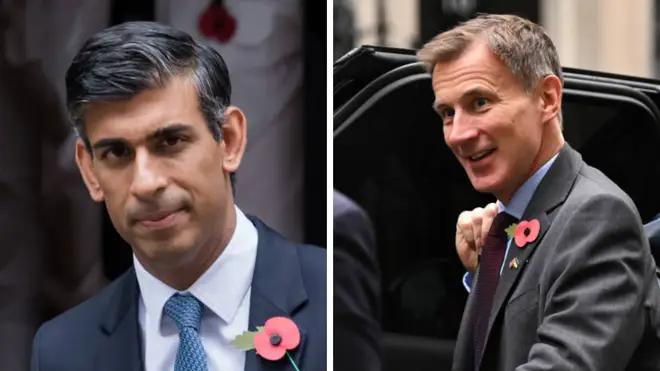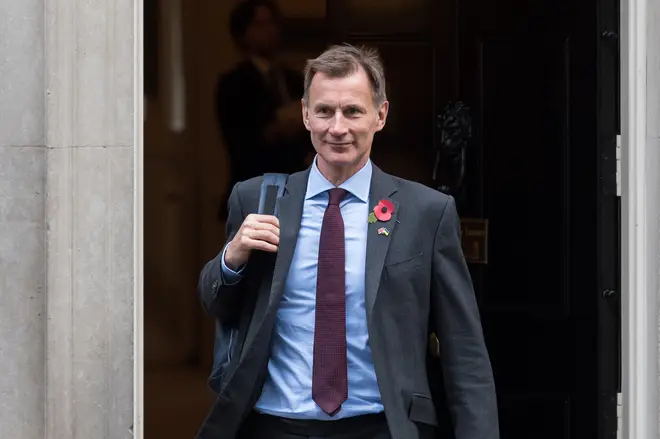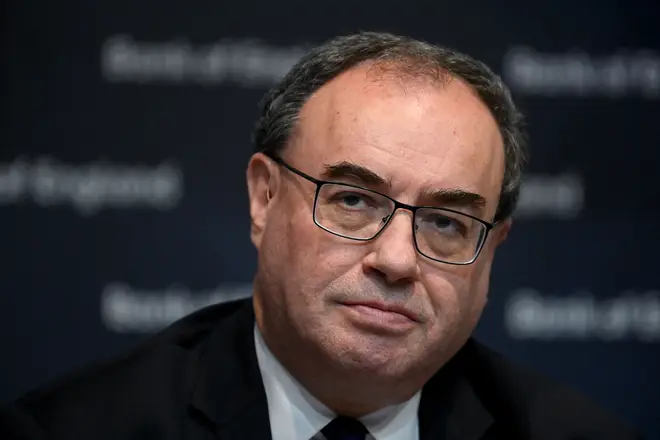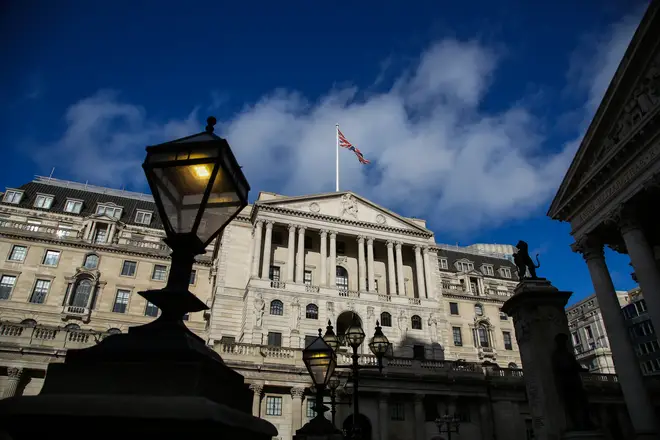
Paul Brand 10am - 12pm
3 November 2022, 23:57 | Updated: 3 November 2022, 23:58

The government is planning to beef up taxes on entrepreneurs, landlords and savers in a bid to plug the £50 billion black hole in Britain's finances, according to reports -after the Bank of England warned the country could be facing its longest-ever recession.
Chancellor Jeremy Hunt is planning to increase the headline rate of capital gains tax, which targets the profits made from selling assets, the Telegraph reported.
Mr Hunt is also looking at changing the reliefs and allowances on the tax, alongside an increase in dividend taxes, and a cut to the tax-free dividend allowance from £1,000 to £2,000, according to the Financial Times.
All of these changes combined would have an impact that would run to the "low billions" per tax year, the FT reported.

A business group has condemned the possible tax increases, arguing that they will put a dampener on entrepreneurship, possibly hindering economic growth further.
But a civil service source told the Telegraph: “We have a fiscal hole north of £50bn. We have to cover that with spending cuts and tax rises to try to balance and books."
Mr Hunt warned of "eye-watering" public spending cuts and tax increases when he became chancellor in October, following the market turmoil caused by his predecessor Kwasi Kwarteng's proposal of unfunded tax cuts for those on the highest incomes.

And he and Prime Minister Rishi Sunak, who replaced Liz Truss last week, are reportedly determined that much of the economic burden should fall on those with "the broadest shoulders".
The changes to the reliefs and allowances under capital gains taxes are reportedly the most likely to be approved ahead of the autumn statement on November 17, while the headline rate increase is also a possibility.
Homeowners are not expected to get any support from the government, according to the Telegraph, despite increases to interest rates meaning mortgage holders are likely to face higher monthly repayments.

Prof. Mazzucato explains 'dysfunctionalities' in the economic system
The federation of small businesses, a trade association for SMEs, criticised the proposed plans.
Craig Beaumont, head external affairs at the FSB, said: “The rise as mooted is another deterrent to becoming an entrepreneur.
"Owner-managers who pay themselves through dividends were largely left out of pandemic-era income support schemes..
“Economic recovery will depend on entrepreneurship. Disincentivising this group in yet another way would be a short-sighted move from the new Chancellor, himself a former entrepreneur.”

Economics professor Danny Blanchflower speaks to Tom Swarbrick
Mr Hunt said on Thursday: "Today's news is going to be very tough for families with mortgages up and down the country, for businesses with loans.
“But there is a global economic crisis - the International Monetary Fund says a third of the world's economy is now in recession.”
He added: "The best thing the Government can do if we want to bring down these rises in interest rates is to show that we are bringing down our debt.
"Families up and down the country have to balance their accounts at home and we must do the same as a government."
The Treasury declined to comment.

It comes after the Bank of England warned on Thursday that the UK is on course for the longest recession since reliable records began a century ago, as it hiked interest rates by 0.75% in an attempt to control inflation.
The 0.75% rise is the single biggest increase since 1989 and could see mortgage holders get hit by £3,000 a year.
It is also the eighth time in a row that the Bank hikes interest rates, which mortgages are set against.
Less than a year ago the rate was 0.1%.
The Bank of England's governor Andrew Bailey said there is a "tough road ahead" but the Bank needed to act to tackle inflation.
Recent figures show inflation soared to 11.6% in October, with basics such as tea bags, milk and sugar all seeing significant price rises as the cost of living crisis continues.
While Mr Bailey admitted the rises are "big changes and they have a real impact on peoples' lives" but warned that "if we do not act forcefully now, it would be worse later on."
However, he added that "we think Bank rate will have to go up by less than is currently priced in by financial markets" meaning "fixed rate mortgages should not need to rise as much as they have done".